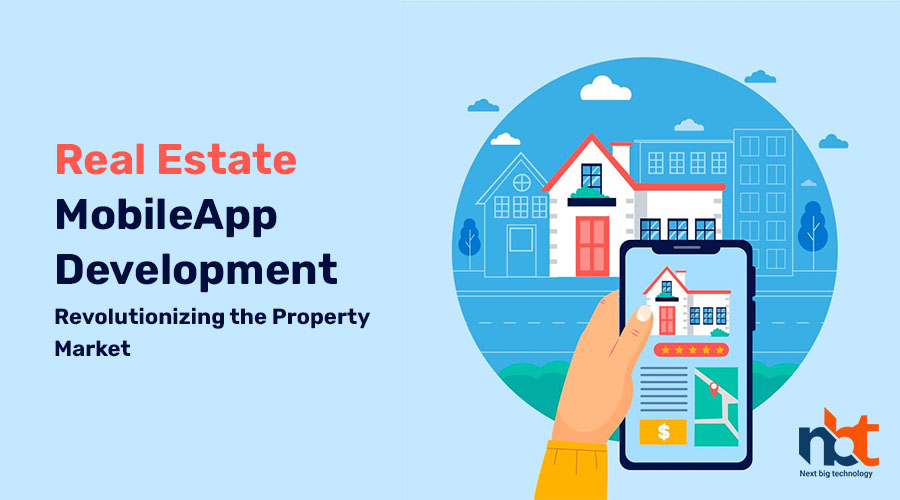In the fast-paced world of real estate, staying ahead of the competition is crucial. As the industry continually evolves, real estate mobile app development has become a game-changer, transforming how buyers, sellers, and real estate professionals interact with the market. In this article, we will delve into the world of real estate mobile apps, exploring their significance, features, development process, challenges, and future prospects.
Table of Contents
The Need for Real Estate Mobile Apps
Property Search Made Easy
Real estate mobile apps provide an efficient platform for users to search for properties based on their preferences. These apps offer advanced search filters, allowing users to specify location, price range, property type, and other essential criteria. Such convenience greatly simplifies the property hunting process, saving time for both buyers and sellers.
Virtual Tours
One of the standout features of real estate mobile apps is the ability to provide virtual property tours. Users can explore properties from the comfort of their homes, viewing 3D images, videos, and interactive floor plans. This feature not only enhances user experience but also saves time and resources for real estate agents.
User Profiles
Real estate apps often have user profile features, which help users save their property preferences, searches, and communication history with agents. This feature personalizes the user experience, making it easier to find the right property.
Notifications
Push notifications are a vital feature that keeps users informed about new listings, price changes, or relevant market updates. Users can customize their notification preferences, ensuring they receive timely information.
Benefits of Real Estate Mobile Apps

Convenience
The primary advantage of real estate mobile apps is the convenience they offer. Buyers and sellers can access property information, schedule viewings, and communicate with agents anytime and anywhere. This level of flexibility is a significant selling point for these apps.
Cost Savings
Real estate mobile apps reduce the need for physical marketing materials and resources. Sellers can showcase their properties digitally, saving money on brochures, flyers, and open house expenses.
Increased Sales
The ease of finding and viewing properties attracts more potential buyers, leading to increased sales. For real estate agents, these apps provide a broader reach and an effective platform for marketing properties.
Key Players in Real Estate App Development
Several companies specialize in real estate mobile app development, with each offering unique features and services. Some of the notable names in this industry include Zillow, Realtor.com, and Redfin.
Steps in Developing a Real Estate Mobile App
The development of a successful real estate mobile app involves several key steps:
Market Research

Understanding the target audience, their preferences, and the competition is essential. Market research helps in creating an app that caters to users’ needs.
Design and Development
The app’s design and development phase involves creating an intuitive user interface and ensuring a seamless user experience. Developers use the latest technologies to build functional, visually appealing apps.
Testing
Thorough testing is crucial to identify and fix any bugs or glitches. Testing ensures that the app functions correctly and meets user expectations.
Launch
Once the app is ready, it is launched on app stores, and marketing efforts begin to attract users.
Monetization Strategies
Real estate app developers can monetize their apps through various strategies:
Subscription Models
Some apps offer premium features or content through subscription plans, providing an ongoing source of revenue.
In-App Advertising
In-app advertising, such as promoting real estate agencies or related services, generates income through partnerships.
Transaction Fees

Apps can charge transaction fees for services like listing properties or facilitating transactions, creating a revenue stream for the platform.
Challenges in Real Estate Mobile App Development
Data Security
Real estate apps deal with sensitive user information, making data security a top priority. Developers must implement robust security measures to protect user data.
User Engagement
Sustaining user engagement is challenging, as users may not return to the app once they find their desired property. App developers need to create engaging content and features to keep users active.
Market Competition
The real estate app market is competitive, with many players vying for users’ attention. Staying competitive requires continuous innovation and marketing efforts.
The Future of Real Estate Mobile Apps
The future of real estate mobile apps is promising. Advancements in technology, such as augmented reality and virtual reality, will likely enhance the user experience. Additionally, AI-driven features, predictive analytics, and personalized recommendations are expected to become standard in real estate apps.
Conclusion
Real estate mobile app development has revolutionized the property market, providing a convenient platform for buyers and sellers. These apps offer numerous benefits, including cost savings and increased sales. While there are challenges to overcome, the future of real estate mobile apps is bright, with technology driving innovation and improving user experiences.
FAQs
1. What are the essential features of a real estate mobile app?
Real estate mobile apps typically include property search, virtual tours, user profiles, and notifications as essential features.
2. How can real estate mobile apps benefit both buyers and sellers?
Buyers benefit from the convenience of property search and virtual tours, while sellers can save on marketing expenses and reach a broader audience.
3. Are there any successful examples of real estate mobile apps?
Yes, companies like Zillow, Realtor.com, and Redfin have developed successful real estate mobile apps.
4. What challenges do developers face in ensuring data security?
Data security is a significant challenge, as real estate apps handle sensitive user information. Developers must invest in strong security measures to protect user data.
5. How can I get started with my real estate mobile app development project?
To start a real estate mobile app project, you need to conduct market research, plan the design and development, test the app thoroughly, and then launch it on app stores.
Thanks for reading our post “Real Estate Mobile App Development: Revolutionizing the Property Market”. Please connect with us to know more about Real Estate Mobile App Development.










